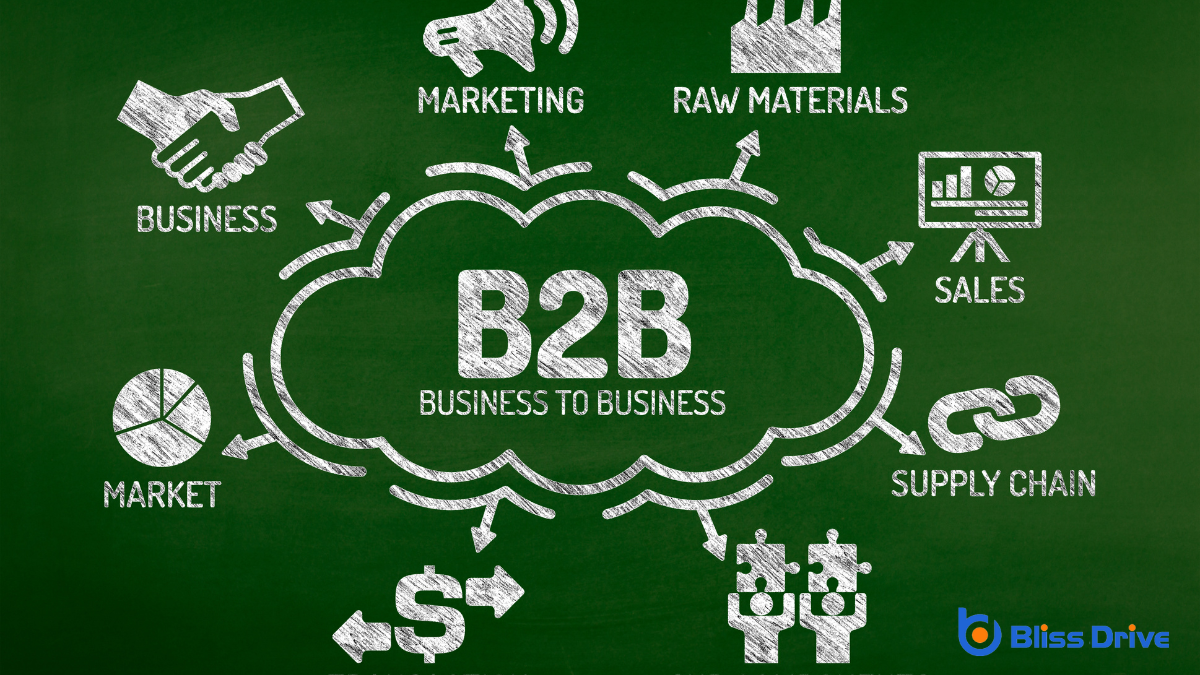Learn More About Us

As we explore the question of what the best B2B platform is, we must first consider our business needs and goals. With so many platforms available, each boasting unique features, it can be challenging to determine which one aligns best with our objectives. Whether it's cost-effectiveness, user experience, or security, our choice should reflect our priorities. Let's navigate this complex landscape together, discovering the strengths and weaknesses of top contenders.
When we immerse ourselves in the world of B2B platforms, it quickly becomes clear just how essential they're for modern businesses.
These platforms streamline interactions between companies, fostering efficiency and collaboration. They’re not just about buying and selling; they’re about creating a network where businesses connect, share insights, and grow together.
B2B platforms provide tools for communication, transaction management, and data analysisThe process of inspecting, cleaning, transforming, and modeling data to discover useful information...., empowering us to make informed decisions. They help us reach new markets and build relationships that drive success.
As we navigate these platforms, we see how they’ve transformed traditional business processes into seamless digital experiences. By understanding their role and impact, we can leverage these platforms to enhance our strategies and stay competitive in an ever-evolving marketplace.
As we grasp the importance of B2B platforms in modern business, it’s vital to tailor our approach by identifying our unique business needs and goals.
We must first evaluate what specific outcomes we're aiming for: greater efficiency, increased sales, or perhaps enhanced customer interactions. By understanding our objectives, we can align our platform choice with our long-term vision.
Next, let's consider our target audience. Are we focusing on small businesses or large enterprises? Knowing our audience helps us select a platform that meets their expectations and demands.
Additionally, budget constraints play a significant role. We should determine how much we're willing to invest in a platform. By clearly defining our needs and goals, we position ourselves to choose a B2B platform that supports our success.

As we explore what makes a B2B platform stand out, let's focus on two essential aspects: a user-friendly interface design and robust security measures.
We all want a platform that's easy to navigate, ensuring our team can work efficiently without unnecessary hurdles.
Equally important is knowing our data is protected, so strong security features should be non-negotiable.
How important is a user-friendly interface in a B2B platform? We’d argue it’s essential. When we’re maneuvering through the complexities of business-to-business interactions, a straightforward, intuitive interface can make all the difference. It saves us time, reduces errors, and enhances productivity by enabling us to focus on what truly matters—growing our business.
In a world where efficiency and ease are king, a clunky interface can be a significant hindrance. We’re more likely to engage with a platform that’s designed with us in mind, featuring clear navigation, accessible tools, and responsive designA web design approach that makes web pages render well on a variety of devices and window or screen ....
A user-friendly interface doesn’t just improve our experience; it also reflects the platform’s commitment to understanding and meeting our needs. Let’s prioritize this feature as we evaluate the best B2B platforms.
While a user-friendly interface is essential for an engaging experience, robust security measures are equally important in selecting a B2B platform. We need to guarantee our sensitive business information stays protected.
Look for platforms offering advanced encryption to safeguard data from unauthorized access. Multi-factor authentication adds another layer of protection, verifying identities before granting access.
It's vital that our platform complies with industry standards and regulations, like GDPR or CCPA, to prevent data breaches. Regular security audits and updates are necessary to address potential vulnerabilities and enhance overall security.
When evaluating the best B2B platforms, it's essential to compare the strengths and weaknesses of each to find the right fit for your business needs.
We should focus on key areas that impact usability and efficiency. Here's a quick comparison:
Let's consider how platform subscription costs impact our budget and what kind of return on investment we can anticipate.
We need to evaluate if the value gained from the platform justifies the expense.
Evaluating platform subscription costs is essential for any business seeking to optimize its B2B operations.
Let’s consider some key factors that can help us make an informed decision:
While understanding the subscription costs of a B2B platform helps us manage our budget, it's equally important to gauge the return on investment (ROI)A measure of the profitability of an investment, calculated by dividing the net profit by the cost o... these platforms offer.
When we evaluate ROI, we're looking at the value gained relative to the cost. A platform that only saves us money isn't the best choice if it doesn't also boost our efficiency or sales.
By focusing on the potential for increased productivity, enhanced customer reach, and streamlined operations, we can better assess a platform's true worth.
Let's ask ourselves: Does it provide tools that lead to faster sales cycles or improved customer satisfaction?
Analyzing these factors alongside cost gives us a clearer picture of which platform truly offers the best value for our business needs.

How do we determine which B2B platform offers the best user experience and usability? Let’s explore some key factors. A seamless user experience can save time and reduce frustration, making platforms more appealing.
Evaluating usability involves considering:
When selecting the best B2B platform, how important is it to assess security and compliance measures? It’s essential. We need to guarantee that the platform protects sensitive data and aligns with industry regulations.
Let’s think about it: breaches can damage reputations and result in financial losses. Consequently, understanding a platform’s encryption methods and data handling practices is critical.
Additionally, compliance with standards like GDPR or HIPAA, depending on our industry, safeguards us from legal complications. We should look for platforms that offer regular security updates and audits.
By prioritizing these measures, we not only protect our business but also build trust with partners. After all, a secure platform is foundational to successful, long-term B2B relationships.
Let’s choose wisely and protect our interests.
As we've guaranteed our B2B platform is secure and compliant, let's look ahead to the future trends shaping these platforms and technologies. The B2B landscape is evolving rapidly, and staying informed is crucial for maintaining a competitive edge. Here are four trends we should keep an eye on:
Embracing these trends will help us lead in the ever-changing B2B arena.
In our exploration of B2B platforms, we've seen how essential it is to align a platform with our business goals and needs. By focusing on key features, usability, security, and cost-effectiveness, we can choose a platform that truly enhances our operations. As technology evolves, staying informed about future trends will guarantee we're always ahead of the curve. Let's make informed decisions today to drive our business success tomorrow. Together, we can navigate this digital landscape confidently.
